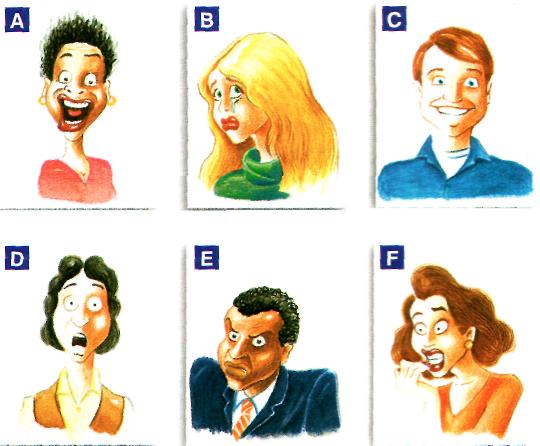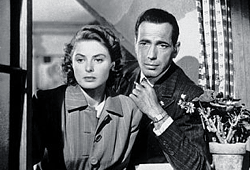
- •I. Recognition, memorization, reproduction
- •II. Comprehension, application, interpretation
- •III. Analytical-synthesized search
- •IV. Creative understanding and application
- •Introduction
- •Recognition, memorization, reproduction
- •II. Comprehension, application, interpretation
- •III. Analytical-synthesized search
- •IV. Creative understanding and application
- •Recognition, memorization, reproduction
- •Comprehension, application, interpretation
- •Analytical-synthesized search
- •IV Creative understanding and application
- •Recognition, memorization, reproduction
- •Comprehension, application, interpretation
- •Analytical-synthesized search
- •IV Creative understanding and application
- •Recognition, memorization, reproduction
- •Comprehension, application, interpretation
- •Analytical-synthesized search
- •1. Jake Armstrong
- •2. Laura Dyson
- •3. Emmy Mason
- •4. Luke Demain
- •The archetypal englishman
- •IV Creative understanding and application
- •Recognition, memorization, reproduction
- •Comprehension, application, interpretation
- •Analytical-synthesized search
- •Creative understanding and application
- •Recognition, memorization, reproduction
- •Comprehension, application, interpretation
- •Analytical-synthesized search
- •IV. Creative understanding and application
- •Recognition, memorization, reproduction
- •Comprehension, application, interpretation
- •Analytical-synthesized search
- •IV Creative understanding and application
- •Recognition, memorization, reproduction
- •Comprehension, application, interpretation
- •Analytical-synthesized search
- •IV Creative understanding and application
- •Recognition, memorization, reproduction
- •Comprehension, application, interpretation
- •Analytical-synthesized search
- •Creative understanding and application
- •Recognition, memorization, reproduction
- •Comprehension, application, interpretation
- •Analytical-synthesized search
- •IV. Creative understanding and application
- •I. Recognition, memorization, reproduction
- •II. Comprehension, application, interpretation
- •III. Analytical-synthesized search
- •IV. Creative understanding and application
- •I. Recognition, memorization, reproduction
- •II. Comprehension, application, interpretation
- •III. Analytical-synthesized search
- •IV. Creative understanding and application
- •Expressions to Introduce the Opinion
- •Киноискусство Учебно-методическое пособие по практике устной и письменной речи английского языка
- •225404 Г. Барановичи, ул. Войкова, 21
Analytical-synthesized search
Task 1. What was the last film you saw, either in the cinema or on TV?
Was it a western, an adventure film, a thriller, a horror film, a comedy, a musical, a science-fiction, fantasy, or a detective film? Who were the stars? Who played the hero, the heroine, the villain? Share your ideas using the following as an outline.
Title of the film.
Type of the film:
fiction or non-fiction;
feature film or short;
black-and-white or colour;
original version or prequel, sequel, remake, reissue;
mainstream studio or art-house.
Genre of the film:
main genre;
main sub-genre.
Production:
domestic or foreign film;
company that released it.
Plot of the film:
place of actions;
main characters of the film;
Origin of a story:
the climax of the story;
the massage of the film.
Photography used in the film:
using of shots;
b) using of effects.
Acting of actors / actresses:
name of the main actor / actress;
name of supporting actors / actresses;
quality of performance.
Sound effects.
10) General impression.
B. How did these cinema-goers feel while watching a film? Look at these pictures and describe their feelings. Decide the genre and the quality of the film they are watching.

C. How did you feel after watching when leaving the cinema? Complete the form below.
Movie: _____ Type: _____ Feeling: _____ Explanation
. Discuss the following points.
“Nowadays people prefer watching films at the cinema instead of relaxing on the couch in front of their TV sets”. Do you support this statement? Give your arguments.
Fill in the following chart.
|
Advantages |
Disadvantages |
going to the pictures |
|
|
watching a video at home |
|
|
Task 2. You see these film reviews in the local paper. Which film would you like to watch? Give your arguments.
BULLETS OVER BROADWAY
Jack Cusack stars in Woody Allen's comedy about a young New York playwright whose play is financed by a gangster and whose girlfriend is cast in the star part. Good twenties fun.
BEFORE SUNRISE
Richard Linklater's charming film with Julie Delpy and Ethan Hawke finding romance in Vienna.
INTERVIEW WITH A VAMPIRE
Neil Jordan's version of the Ann Rice bloodsucker, with Brad Pitt and Tom Cruise and Kirsten Dunst as their female partner. Classic horror with a touch of romance.
TERMINAL VELOCITY
Deran Serafian's thriller involving spies, politics and crime. Skydiving to rival "Drop Zone".
Task 3. Read the following text.
Be sure that you know all the highlighted words. Try to remember and use them in your speech.
While reading the text decide the main genre, subgenre of the film, described in this text. Give your arguments.
CASABLANCA
C asablanca
was first shown in November 1942, a few days after Allied forces had
landed in Morocco to liberate the city from the Nazis. For its
fiftieth anniversary, the film was shown once again in main cinemas
in London and New York, and in the intervening years it has never
lost its popularity. How has this film become probably the best loved
of all motion
pictures?
asablanca
was first shown in November 1942, a few days after Allied forces had
landed in Morocco to liberate the city from the Nazis. For its
fiftieth anniversary, the film was shown once again in main cinemas
in London and New York, and in the intervening years it has never
lost its popularity. How has this film become probably the best loved
of all motion
pictures?
The question has been asked many times, above all because the film was largely improvised. The scriptwriters were making alterations up to the last minute, and it is said that Ingrid Bergman was not told until just before the last scene whether Lisa would end in the arms of Rick or her husband.
The film has never been very popular with the critics, though. When it was first shown, it was greeted with lukewarm reviews and even though it won the Oscars for the best film, the best direction and the best screenplay a year later, many share the view of Pauline Kael, who described it as "a movie that demonstrates how entertaining a bad movie can be".
It is probably inevitable that at this distance, the straightforward presentation of people as good and bad, the conviction that it is right to take part in a war in certain circumstances, the invocation of patriotism when everyone in Rick's cafe stands up to sing the Marseillaise, drowning the German officers' protests, all seem rather dated. And it is easy to call the love affair between Rick and Lisa and the scene of their parting, as he watches her leave with her husband, sentimental, and typical of Hollywood. Intellectual critics, indeed, were bound to dislike the film or damn it with faint praise simply because it is obviously a commercial product.
But I am totally convinced that on this occasion the general public have always been right and the critics wrong. The film is a wonderfully professional achievement. It has well organized scenes, building up to a climax. The dialogue is sharp and witty, and most of the jokes have not lost their savour — for example, the French prefect of police investigating a crime, saying wearily. "Round up the usual suspects". However, what is supposed to be the most famous line in the film, Lisa telling the black pianist, "Play it again, Sam", because As Time Goes By is the song that reminds her of her time with Rick in Paris, does not actually occur in the script.
The acting is impeccable in the minor as well as the major roles, and the stars themselves are so perfectly cast that the shots of them together have become mythical. Humphrey Bogart has never been surpassed as the man whose tough, professional exterior hides a romantic sense of honour. There has never been a film actress with a more beautifully expressive face in close-up than Ingrid Bergman.
In the final assessment, the myth and the continuing popularity of the film rest on the fact that it embodies human values that are far more attractive to the general public than to intellectual critics. It is about love that may involve self-sacrifice being willing to fight for what one believes in, and the idea that being independent and making your own choices involves a sense of responsibility. If these things are now considered romantic sentimental, old-fashioned, so much the worse for our generation.
Say true or false
1. Casablanca was first shown a few days after Nazis had landed in Morocco to liberate the city from Allied forces 2. The scriptwriters worked out an exact scenario, but Ingrid Bergman wasn’t shown it. 3. When the film was shown first it became a hit with the critics. 4. Speaking about this film the author is totally convinced that public have always been right, but not critics. 5. There has never been a film actress with a more beautifully expressive face in close-up than Pauline Kael.
D. Discuss the following points.
What is this film about?
Is it a star-studded film?
What was the attitude of public and critics towards it? Has it won universal acclaim?
Has it taken any awards? What are they?
Are there any old films you like and appreciate? What do you like about them in particular?
What standards should a film you like meet? What scenes, effects, actors influence you most?
Task 4. Which of the features below would you like to see in a film? What genres are these features typical of? Give you arguments. Prolong the list.
lots of actions or interaction;
a simple story line or a complicated plot;
a predictable ending or a twist at the end;
supermen / women or true-to-life characters;
lots of special effects or dialogues;
(in the case of foreign films) subtitles or dubbed dialogues;
_______________________________________________;
_______________________________________________;
_______________________________________________;
_______________________________________________;
_______________________________________________.
